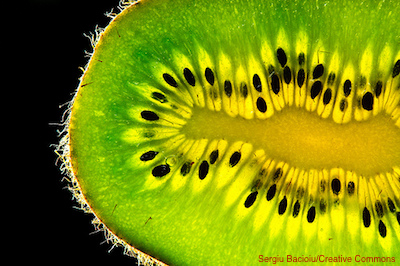By Janis Siegel ,
JTNews Columnist
If you’re baffled by Initiative Measure No. 522, the proposed genetically modified food labeling ballot measure in the upcoming Nov. 2013 Washington State election, it might be instructive to explore Israel’s agricultural research and its regulation of GM foods. It may not necessarily clarify your position on the subject, but Israel’s approach to the use of the technology along with the rest of the world’s varied responses to allowing it into their food supplies are worth considering.
GM foods typically contain DNA from a plant or animal of the same species inserted into them to obtain a desired trait. Many detractors of the process have raised serious objections to the more unconventional transplantation of DNA or genetic material from one species to another non-related species. This is relatively new territory that began in the early 1970s and is on the verge of entering the mainstream food chain in the U.S., where genetically engineered salmon is expected to be FDA-approved in the next few weeks for sale in stores. It will be the first GM animal ever approved for human consumption and contains genes from an “eel-like fish” and another breed of salmon.
The genetic engineering of plant seeds can save populations by optimizing the presence of life-saving vitamins in them, increasing their insect and virus resistance, upping their yields, and designing them to tolerate higher amounts of herbicides.
However, GM seed can also leave human populations vulnerable to everything from serious digestive problems to documented deadly allergic reactions, as well as their economic and environmental effects on the land.
For over a decade, the European Union has resisted pressure from the United States, via the Free Trade Agreement, to accept our GM food imports. The U.S. has already genetically modified several crops used in most domestic food products including corn, soy, and canola, and the modification of the cottonseed oil crop is quickly accelerating.
Just this past month, a Mexico judge banned GM corn due to its harmful environmental effects.
In Israel, agricultural research in universities is heavily subsidized by the Israeli government and international corporations. Universities are very accepting of GMOs in the laboratory. Most of the research is on the genetic modification of plants and it focuses on improving its resistance to diseases, herbicides, and pests.
Currently, food researchers are experimenting with a tomato that would be resistant to viruses and grown without seeds. Tomato researchers are also working to genetically modify genes to manipulate the amount of non-saturated fat in the plants.
But Israel’s Ministry of Agriculture highly regulates the research on GM foods to prevent the contamination of GM seed to other non-modified crops within the country. Seed drift is a large problem wherever GM foods are grown.
Globally, local and organic farmers have sued corporations accusing them of intentionally allowing their seed to contaminate local crops in order to claim patent infringement and overtake them.
In Israel, a highly specific research plan must be submitted by anyone wanting to experiment with GM plants and their related microorganisms.
But perhaps most importantly, in addition to the initial strict application process in Israel, researchers can only develop a technology to the “proof of concept,” or research, stage.
Although Israel allows the use and sale of GM foods in the country, it does not allow them to be grown there commercially.
Once developed, a GM technology that is ready for a real-world application must be exported to other countries for testing. GM researchers can only test small projects in enclosed green houses or if in open fields, it must be far away from agricultural areas.
In addition to the health effects of GM foods, which are in dispute with many of its promoters, Israel’s kosher laws complicate the issue. Some religious groups do not see it as a threat while others support its detractors.
The Israeli kosher authority has ruled that genetic engineering doesn’t affect a product’s kosher status because genes are microscopic.
However, other Jewish groups believe that the foods created by transferring DNA from one species to another is in direct violation of the biblical directive to not mingle different seeds and breeds together — whether plant or animal.
Strawberries have always been problematic in Israel because they contain microscopic bugs that cannot easily be washed away. Kosher authorities only allow them to be eaten when they are blended into other foods. If the berries are bug-free, they are usually awash in pesticides.
But recently, an Israeli chemical developer created a new pesticide called Tamar Tech that appears to have solved the issue: A vegetable oil emulsion that greatly reduces the need for pesticides down to about 20 percent and is safe for humans and the environment. According to the AgroNews Web site, the natural spray is already being used in southern Israel to grow 40,000 tons of cherry tomatoes.
Another small Israeli startup has found a way to make plants genetically resistant to disease. The U.S. is helping to fund pre-field trial tests.
Still, there are no requirements for labeling GMOs in Israel. However, its Ministry of Health is preparing regulations to require labeling when a food product contains GM corn or soy. The proposal would require the words “genetically modified” to be printed on packaging.
Should Washington State do the same?
Longtime JTNews correspondent and freelance journalist Janis Siegel has covered international health research for SELF magazine and campaigns for Fred Hutchinson Cancer Research Center.
